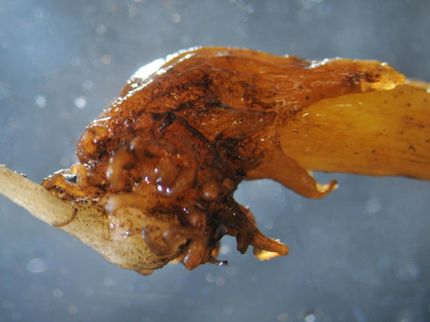UBC researchers find first-ever 'wanderlust gene' in tiny bony fish
Advertisement
A gene previously associated with physical traits is also dictating behaviour in a tiny fish widely regarded as a living model of Darwin's natural selection theory, according to a University of British Columbia study.
Measuring three to 10 centimetres, stickleback fish originated in the ocean but began populating freshwater lakes and streams following the last ice age. Over the past 15,000 years, freshwater sticklebacks have lost their bony lateral plates, or "armour," in these new environments. Scientists have identified a mutant form of a gene, or allele, that prohibits growth of armour and is commonly found in freshwater sticklebacks but exists in less than one per cent of their marine counterparts.
Now UBC PhD candidate Rowan Barrett and colleagues from UBC's Dept. of Zoology have found that the gene may also be contributing to the fish's tendency to relocate instead of adjusting to their surroundings – the first time a gene associated with this type of behaviour has been identified. Their findings are published in Biology Letters .
"Contrary to our assumption, the low-armour allele is not linked to a preference for fresh water, or low salinity," says Barrett. "Instead, we found a strong association between having the allele and the fish's inclination to move into different salinities – a sort of 'wanderlust gene,' if you will – instead of staying put and acclimatizing to the current salinity."
"The combination of physical and behavioural traits could explain why the low-armour allele keeps turning up during marine sticklebacks' 'invasion' of freshwater habitats," says Barrett.
"The new behavioural association we've identified may also shed light on why there's still a small but constant population of armour-less sticklebacks in the sea despite the high predation there. Sticklebacks with the mutant allele just like to go to new places."
Organizations
Other news from the department science

Get the life science industry in your inbox
By submitting this form you agree that LUMITOS AG will send you the newsletter(s) selected above by email. Your data will not be passed on to third parties. Your data will be stored and processed in accordance with our data protection regulations. LUMITOS may contact you by email for the purpose of advertising or market and opinion surveys. You can revoke your consent at any time without giving reasons to LUMITOS AG, Ernst-Augustin-Str. 2, 12489 Berlin, Germany or by e-mail at revoke@lumitos.com with effect for the future. In addition, each email contains a link to unsubscribe from the corresponding newsletter.



























































